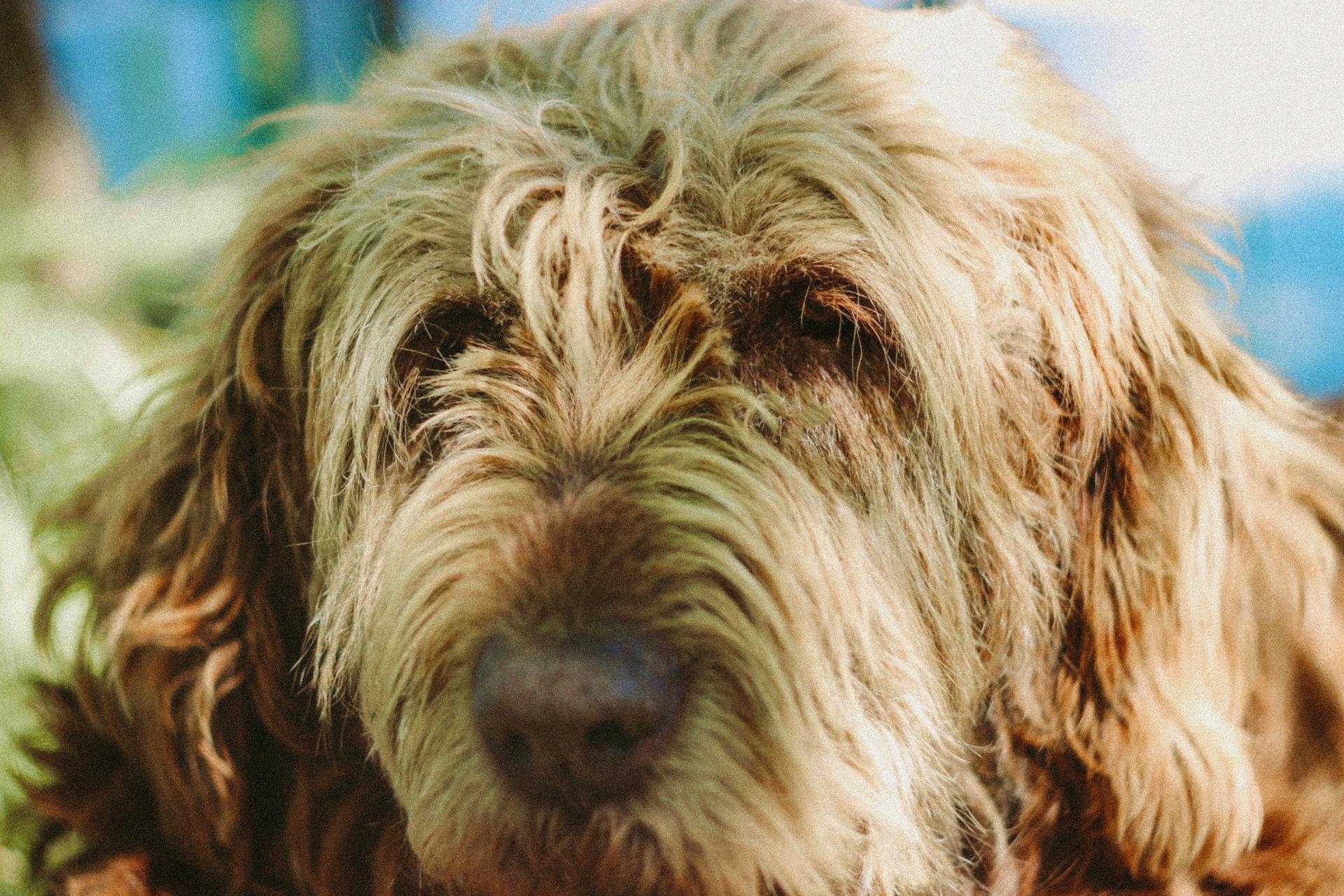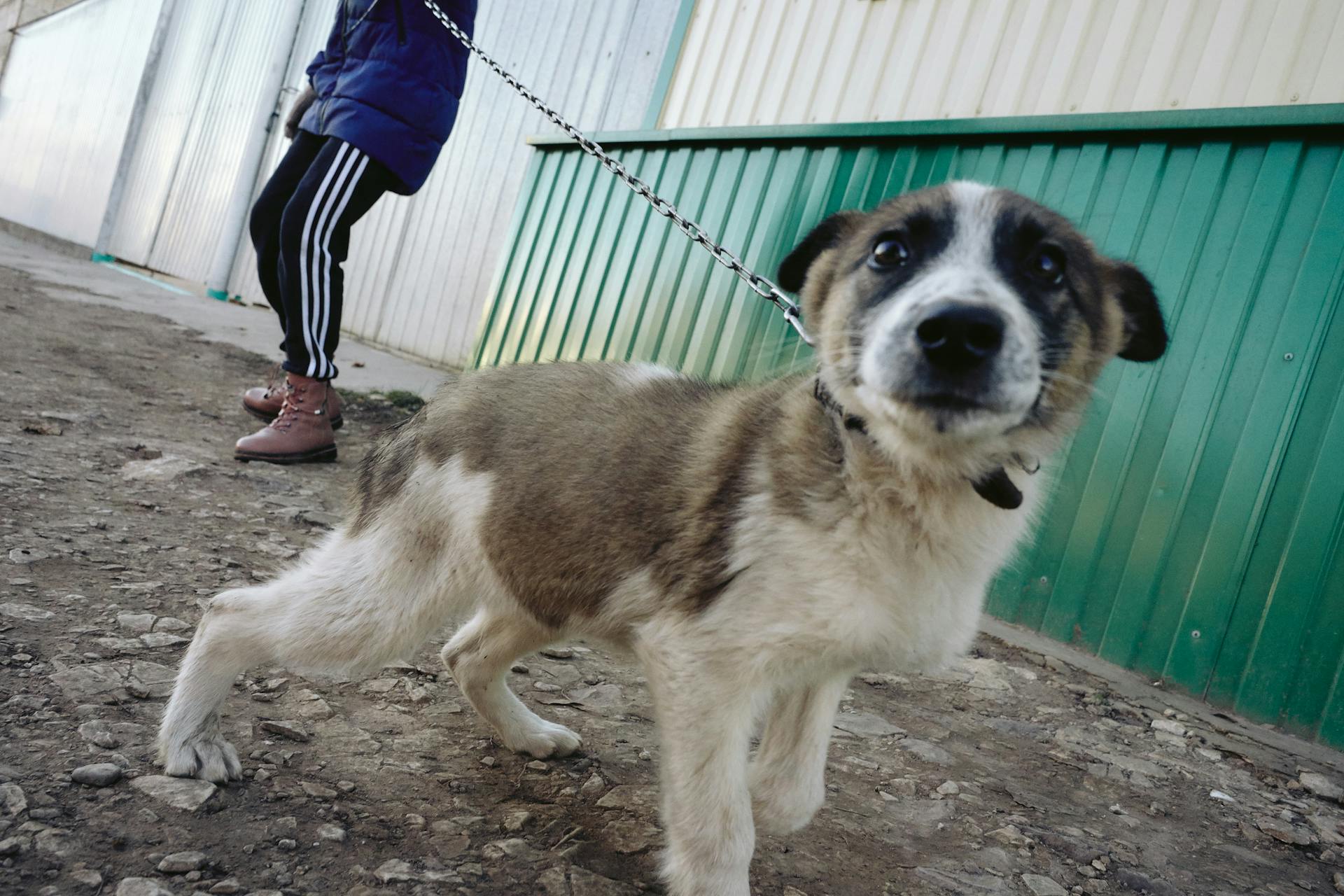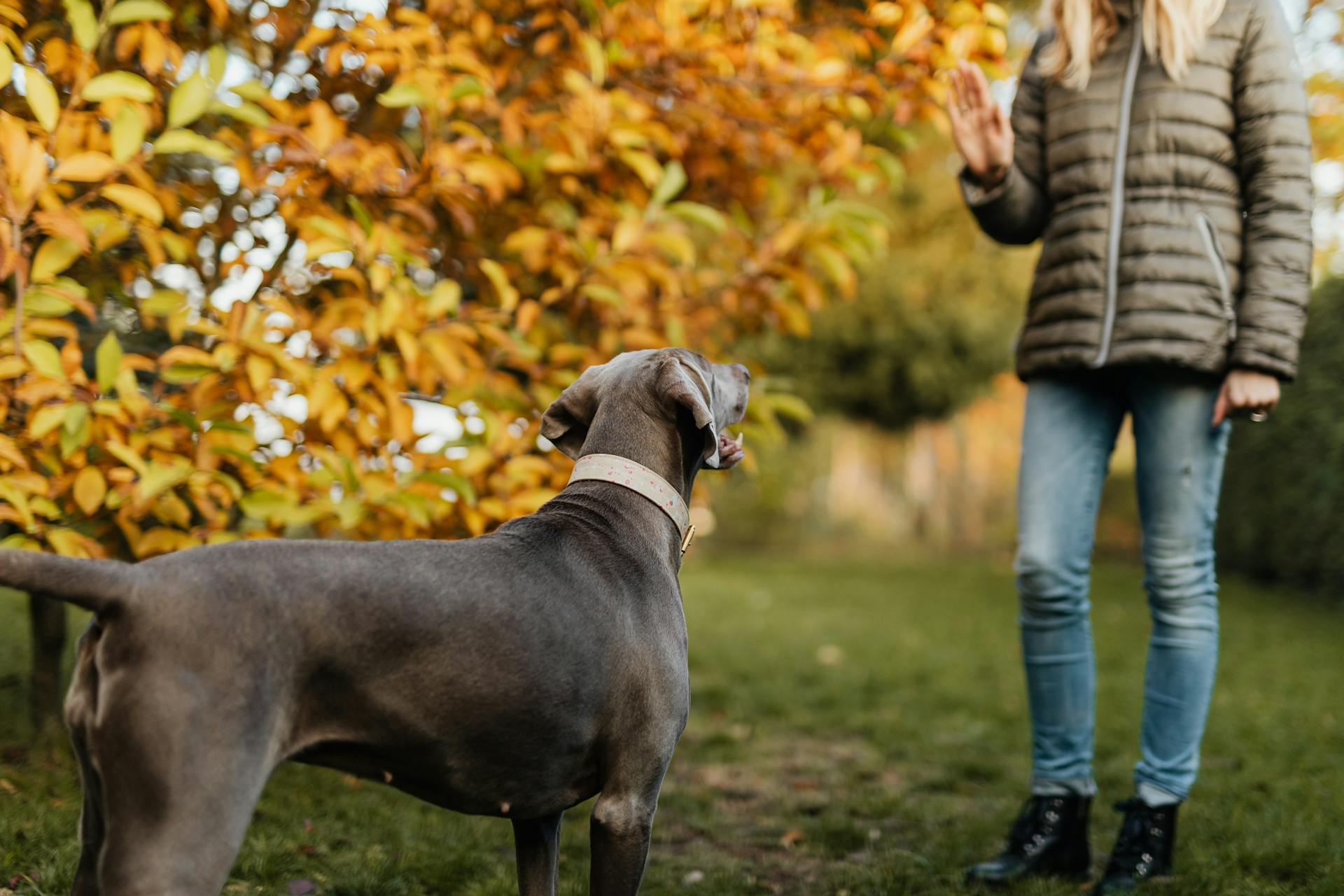
The Otterhound is a loyal companion that thrives on human interaction. They were originally bred to hunt otters, but their friendly nature makes them a great fit for families.
Otterhounds are known for their independent nature, but they still require regular exercise and mental stimulation to prevent boredom and destructive behavior. They need daily walks and playtime to keep them happy and healthy.
With their friendly and outgoing personalities, Otterhounds make great family pets, especially for families with children. However, early socialization is crucial to help them develop good manners and a calm temperament.
As a relatively low-maintenance breed, Otterhounds are adaptable to living situations, but they do need regular grooming to prevent matting and tangling of their coats.
General Information
Otterhounds have a distinct voice, which is a powerful bay that can lead hunters on a musical chase. This baying hound voice can be a problem with neighbors, so it's essential to consider this when deciding to bring an Otterhound into your family.
They are known to be vocal, and owners are treated to a running commentary on life in general, including grumbles, sighs, and pleasure groans. However, they also have a tendency to howl at times, especially at night.
Otterhounds love swimming and are natural water dogs. Nothing makes them happier than splashing around in the water. If you live near a lake or ocean, an Otterhound would be a great companion for water activities.
They are a rare breed, and finding a puppy or an adult Otterhound may be challenging. Be prepared to do some research and potentially wait for the right opportunity to bring one home.
Here are some key characteristics of Otterhounds:
- Lively, friendly personality
- Confident, steady, and fearless
- Good with children
- Energetic, active, and athletic
- Affectionate, easygoing, and lovable
- Docile and devoted
These traits make Otterhounds wonderful family pets, but they do require attention to their needs. They need vigorous, frequent exercise and space to run, which can be a challenge for city dwellers.
Care and Training
Training an Otterhound requires patience, as they can be stubborn at times. With a calm and gentle approach, you'll see great results.
Otterhounds are sensitive dogs, so harsh training techniques are a big no-no. Positive training methods, like reward-based training with plenty of praise, work wonders.
Getting started with training as early as possible is key, especially for Otterhound puppies. Short, fun training sessions with treats and praise are the way to go, as they have short attention spans. Consistency and patience are essential for their development.
Training
Training an Otterhound requires patience and consistency. With their independent nature, they can be stubborn at times, but reward-based training with praise and treats can be effective.
They thrive on positive reinforcement and bonding with their owners. Harsh training techniques can be counterproductive and cause them to dislike training.
Their sensitive nature means they react best to calm and gentle leaders. This is especially true for their size and strength, which can be intimidating.
Short, fun training sessions are best for Otterhounds, especially for puppies with short attention spans. Consistency and patience are essential to establish strong human-canine bonds.
Getting started with training as early as possible is crucial to prevent unwanted behavior. Early socialization and training help puppies gain confidence and develop into well-behaved adults.
Intriguing read: Otterhound Puppies Breeders
Care

Caring for your pet is a big responsibility, but it's also incredibly rewarding. Regular veterinary check-ups are essential to ensure your pet's overall health and well-being.
A well-balanced diet is crucial for your pet's optimal health. Provide high-quality food that meets your pet's nutritional needs, and consider adding supplements if necessary.
Exercise is just as important as eating a healthy diet. Aim for at least 30 minutes of physical activity per day, whether it's a walk, run, or playtime in the backyard.
Social interaction is vital for your pet's emotional well-being. Spend quality time with your pet, engaging in activities that bring you both joy and relaxation.
Keep your home safe and pet-proofed to prevent accidents and injuries. Secure any loose wires, toxic substances, and fragile items that could harm your pet.
Owning a Dog
Otterhounds require a lot of time and space to meet their needs.
They're best suited for homes with older children due to their high energy levels.
If you're willing to provide the necessary exercise and attention, an Otterhound can make a loving and devoted companion.
Their energetic nature means they need regular physical and mental stimulation to prevent boredom and destructive behavior.
With the right care and attention, an Otterhound can thrive in a family environment.
Frequently Asked Questions
Are otterhounds good family dogs?
Yes, otterhounds make terrific family dogs due to their loving nature. They are a great choice for families with children, especially those who live in apartments or have smaller yards.
Featured Images: pexels.com
